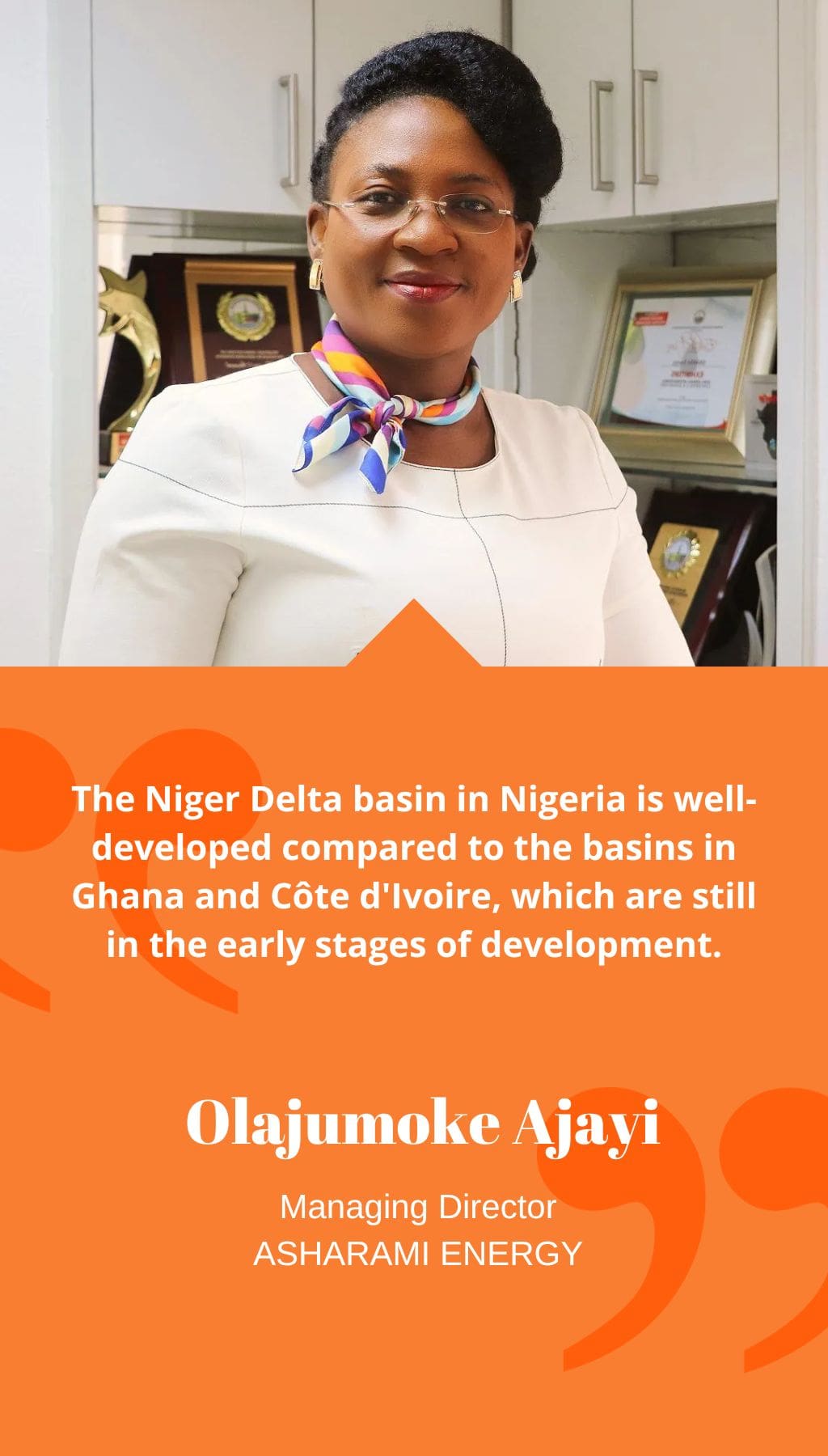
- Nigeria | 14 August 2020

Can you provide an overview of Asharami Energy and the services it provides to the industry?
Asharami Energy is the upstream arm of Sahara group, and we currently operate eight oil blocks across three countries: Côte d’Ivoire, Ghana, and Nigeria. Of these, two blocks in Nigeria are currently producing. Our goal is to increase production to 100,000 barrels per day (bpd) within the next five years. To achieve this, we are actively drilling exploration wells and seeking additional producing assets. Unlike many indigenous companies in the oil and gas industry, our entry into the upstream space was through successful government bid rounds for green fields (OPLs). We started from scratch by acquiring seismic data, conducting drilling and exploration activities, and eventually moving into production.
How does the Nigerian legal framework for exploration compare to those of Ghana and Côte d’Ivoire?
The Niger Delta basin in Nigeria is well-developed compared to the basins in Ghana and Côte d’Ivoire, which are still in the early stages of development. As a result, Ghana and Côte d’Ivoire offer more favorable fiscal terms and regulations to attract investors and further develop their basins. Nigeria’s mature basin cannot be directly compared to these countries in terms of legal frameworks for exploration.
To what extent does the security risk in the Niger Delta impact Asharami Energy’s operations?
Security remains a significant concern in the Niger Delta. However, our strong community relations strategy has been instrumental in ensuring cooperation from our host communities, whom we consider as stakeholders. Transparent engagement with the communities is crucial to demonstrate our commitment to the well-being of the environment and the people. Asharami Energy collaborates with the community to design various intervention models that align mutual interests. Building trust between operating companies and host communities significantly reduces security risks. We have a cordial relationship with our host community, involving them in our operations and providing employment opportunities through our projects. We are even working on a project to supply electricity to the community using gas from our flow station. Taking care of the host community creates a sense of belonging, fosters collaboration, and reduces the likelihood of sabotage.
In general, the security risk in Nigeria is not as severe as it may seem.
Do you believe that the clause in the Petroleum Industry Bill (PIB) guaranteeing 10% to host communities will be implemented and apply to both national and international oil companies?
We are hopeful that once the legislative process is concluded, the provisions of the PIB will be implemented. This implementation has the potential to transform the sector and deepen the market, fostering accelerated growth and development. It is expected to apply to both national and international oil companies operating in Nigeria.
2020 has been referred to as the year of natural gas for Nigeria. Is there adequate infrastructure in place to support this growth?
While I share the excitement surrounding the potential of natural gas in Nigeria, there is still work to be done in terms of developing appropriate infrastructure to support this growth. Efforts are underway to establish the necessary infrastructure, and we anticipate that in due course, Nigeria will have the required facilities to unlock opportunities and become a regional and global force in the gas market.
What are Asharami Energy’s objectives moving forward?
Asharami Energy aims to increase production to 100,000 bpd over the next five years. In addition to this, we are actively seeking to acquire more assets to further boost our production capacity.
Do you have a final message for our international readership?
I believe that the entire industry should prioritize collaboration and knowledge-sharing. We need to enhance the exchange of data and information to learn from one another, reduce errors, and increase productivity across the board. By coming together and leveraging collective expertise, we can drive positive change and advancement in the oil and gas sector.














